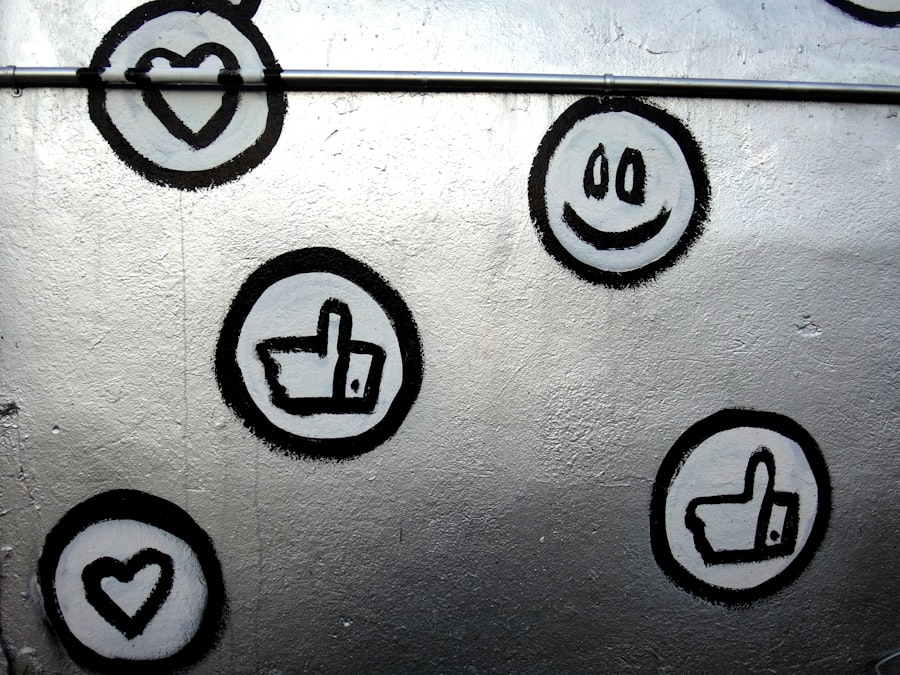In today’s digital age, social media has become an integral part of your daily life. You may find yourself scrolling through feeds, liking posts, and sharing updates more often than you realize. While these platforms offer a way to connect with friends and family, they can also lead to a compulsive need to engage with them, resulting in what experts term social media addiction.
This phenomenon is characterized by an excessive preoccupation with social media, often at the expense of real-life interactions and responsibilities. As you navigate through your day, it’s essential to recognize the signs of this addiction and understand its implications on your mental and emotional well-being. Social media addiction is not merely a modern-day inconvenience; it has profound effects on your brain and behavior.
The allure of instant gratification and constant connectivity can create a cycle that is difficult to break. You may find yourself checking notifications or scrolling through feeds even when you have other tasks to complete. This compulsive behavior can lead to feelings of anxiety and isolation, as the virtual world often replaces genuine human connections.
Understanding the nature of social media addiction is the first step toward reclaiming control over your time and mental health.
Key Takeaways
- Social media addiction is a growing concern with significant impacts on mental health and cognitive function.
- Social media affects the brain by triggering the release of dopamine, a neurotransmitter associated with pleasure and reward.
- Dopamine plays a key role in social media addiction, leading to compulsive behavior and a cycle of seeking validation and approval.
- Social media addiction can have a detrimental impact on mental health, leading to anxiety, depression, and low self-esteem.
- Excessive use of social media can also affect memory, attention span, and emotional regulation, as well as have physical effects on the brain.
How Social Media Affects the Brain
When you engage with social media, your brain undergoes various changes that can influence your thoughts and behaviors. The constant influx of information and stimuli can lead to heightened levels of arousal, making it difficult for you to focus on other tasks. Your brain becomes wired to seek out these digital interactions, creating a feedback loop that reinforces the desire to stay connected.
This can result in a diminished capacity for deep thinking and reflection, as your attention is constantly divided among multiple sources of information. Moreover, the way social media platforms are designed plays a significant role in how they affect your brain. Features such as notifications, likes, and shares are engineered to capture your attention and keep you engaged.
Each time you receive a notification, your brain releases chemicals that make you feel good, reinforcing the behavior of checking your phone or app. This cycle can lead to a dependency on social media for validation and self-worth, making it increasingly challenging for you to disengage from these platforms.
Dopamine and Social Media

Dopamine, often referred to as the “feel-good” neurotransmitter, plays a crucial role in the relationship between social media use and addiction. When you receive likes or comments on your posts, your brain releases dopamine, creating feelings of pleasure and reward. This chemical response can be so powerful that it encourages you to seek out more interactions online, leading to a cycle of dependency.
You may find yourself posting more frequently or engaging in behaviors designed to elicit responses from others, all in pursuit of that dopamine hit. The problem arises when this dopamine-driven behavior becomes habitual. Over time, your brain may require more significant interactions or more frequent engagement to achieve the same level of satisfaction.
This escalation can lead to excessive use of social media, where you prioritize online interactions over real-life experiences. As you chase after those fleeting moments of validation, it becomes increasingly difficult to find fulfillment outside of the digital realm.
The Impact of Social Media Addiction on Mental Health
| Metrics | Data |
|---|---|
| Percentage of population affected by social media addiction | 10% |
| Number of hours spent on social media per day | 3 hours |
| Percentage of individuals experiencing anxiety due to social media use | 30% |
| Percentage of individuals experiencing depression due to social media use | 25% |
| Number of reported cases of social media addiction | 500,000 |
Social media addiction can have far-reaching consequences on your mental health. You may experience heightened levels of anxiety and depression as you compare yourself to others online. The curated nature of social media often presents an unrealistic portrayal of life, leading you to feel inadequate or dissatisfied with your own circumstances.
This constant comparison can erode your self-esteem and contribute to feelings of loneliness, even when you are surrounded by friends and family. Additionally, the pressure to maintain an online persona can be overwhelming. You might feel compelled to present a perfect image, leading to stress and anxiety about how others perceive you.
This pressure can create a vicious cycle where you feel compelled to engage more frequently with social media in an attempt to validate your self-worth.
Social Media Addiction and Memory
Your memory can also be affected by social media addiction in various ways. When you spend excessive time online, you may find it challenging to retain information or focus on tasks that require deep concentration. The constant barrage of notifications and updates can fragment your attention, making it difficult for you to commit new information to memory.
As a result, you might struggle with recalling important details or completing tasks efficiently. Moreover, the reliance on social media for information can lead to a decline in critical thinking skills. Instead of engaging with content deeply or reflecting on what you read, you may skim through posts without truly absorbing the material.
This superficial engagement can hinder your ability to think critically and analyze information effectively, ultimately impacting your cognitive abilities in both personal and professional settings.
Social Media Addiction and Attention Span

One of the most significant consequences of social media addiction is its impact on your attention span. The fast-paced nature of social media encourages rapid consumption of information, which can train your brain to expect instant gratification. As a result, you may find it increasingly difficult to concentrate on tasks that require sustained focus or deep thinking.
This decline in attention span can affect various aspects of your life, from academic performance to workplace productivity. You might notice that you become easily distracted by notifications or the urge to check your phone while working on important projects. This fragmented attention not only hampers your ability to complete tasks efficiently but also diminishes the quality of your work.
Over time, this pattern can lead to frustration and decreased motivation as you struggle to maintain focus in an environment filled with distractions.
Social Media Addiction and Emotional Regulation
Emotional regulation is another area significantly impacted by social media addiction. When you rely heavily on social media for validation or emotional support, you may find it challenging to manage your feelings independently. Instead of developing healthy coping mechanisms for stress or anxiety, you might turn to social media as a quick fix for emotional discomfort.
This reliance can create an unhealthy cycle where you seek out online interactions instead of addressing underlying emotional issues. Furthermore, the nature of online interactions can exacerbate feelings of loneliness or inadequacy. Negative comments or lack of engagement on your posts can lead to heightened emotional distress, making it even more challenging for you to regulate your emotions effectively.
Developing healthy emotional regulation skills is crucial for breaking free from this cycle and fostering a more balanced relationship with social media.
The Physical Effects of Social Media Addiction on the Brain
The physical effects of social media addiction extend beyond mental health concerns; they also impact the structure and function of your brain. Prolonged exposure to digital stimuli can lead to changes in neural pathways associated with reward processing and impulse control. As your brain becomes accustomed to the constant influx of information from social media, it may struggle to adapt when faced with less stimulating environments.
Additionally, excessive screen time has been linked to changes in brain chemistry that can affect mood regulation and cognitive function. You may experience increased levels of stress hormones due to the constant pressure to stay connected and engaged online. These physical changes can contribute to a range of issues, including sleep disturbances and decreased overall well-being.
How to Recognize and Address Social Media Addiction
Recognizing social media addiction is the first step toward addressing its impact on your life. You might notice signs such as spending excessive time online at the expense of real-life relationships or feeling anxious when unable to check your accounts. Reflecting on how social media affects your daily routine can help you identify patterns that indicate an unhealthy relationship with these platforms.
Once you’ve recognized these patterns, it’s essential to take proactive steps toward addressing them. Setting boundaries around your social media use can be an effective strategy for regaining control over your time and mental health. Consider designating specific times for checking social media or limiting usage during certain activities, such as meals or family gatherings.
Tips for Reducing Social Media Addiction
Reducing social media addiction requires intentional effort and commitment on your part. One effective strategy is to establish designated “screen-free” times throughout your day where you engage in activities that promote real-life connections or personal growth. Whether it’s reading a book, going for a walk, or spending quality time with loved ones, these moments can help break the cycle of dependency on digital interactions.
Another helpful tip is to curate your social media feeds intentionally. Unfollow accounts that contribute negatively to your self-esteem or mental health and follow those that inspire positivity and growth. By surrounding yourself with uplifting content, you can create a more supportive online environment that encourages healthier engagement with social media.
Seeking Professional Help for Social Media Addiction
If you find that social media addiction significantly impacts your daily life or mental health despite your efforts to reduce usage, seeking professional help may be necessary. Therapists and counselors specializing in behavioral addictions can provide valuable support and guidance as you navigate this challenge. They can help you develop coping strategies tailored to your unique situation while addressing any underlying emotional issues contributing to your addiction.
In conclusion, understanding the complexities of social media addiction is crucial for maintaining a healthy relationship with technology in today’s interconnected world. By recognizing its effects on your brain, mental health, memory, attention span, emotional regulation, and overall well-being, you can take proactive steps toward reclaiming control over your digital life. Whether through self-reflection, setting boundaries, or seeking professional help, taking action is essential for fostering a balanced approach to social media use that enhances rather than detracts from your quality of life.
Social media addiction has become a growing concern as it significantly impacts brain function and mental health. The constant need for validation and the dopamine-driven feedback loops created by social media platforms can lead to changes in brain structure and function, similar to those observed in substance addiction. For a deeper understanding of how social media addiction affects the brain, you can explore this related article which delves into the psychological and neurological implications of excessive social media use.
LEARN WHY Your Brain Isn’t Addicted to Likes; the Algorithm Gaslights You Daily, Hard.
FAQs
What is social media addiction?
Social media addiction refers to the excessive and compulsive use of social media platforms, leading to negative effects on an individual’s physical, mental, and emotional well-being.
How does social media addiction affect the brain?
Social media addiction can affect the brain in various ways, including triggering the release of dopamine, impacting attention span, increasing anxiety and depression, and altering the brain’s reward system.
What are the signs of social media addiction?
Signs of social media addiction may include spending excessive amounts of time on social media, feeling anxious or irritable when unable to access social media, neglecting responsibilities due to social media use, and experiencing negative impacts on mental health.
What are the negative effects of social media addiction on the brain?
Negative effects of social media addiction on the brain may include decreased attention span, increased risk of anxiety and depression, altered reward processing, and potential changes in brain structure and function.
Can social media addiction be treated?
Yes, social media addiction can be treated through various methods such as cognitive-behavioral therapy, support groups, setting boundaries for social media use, and seeking professional help if necessary.




